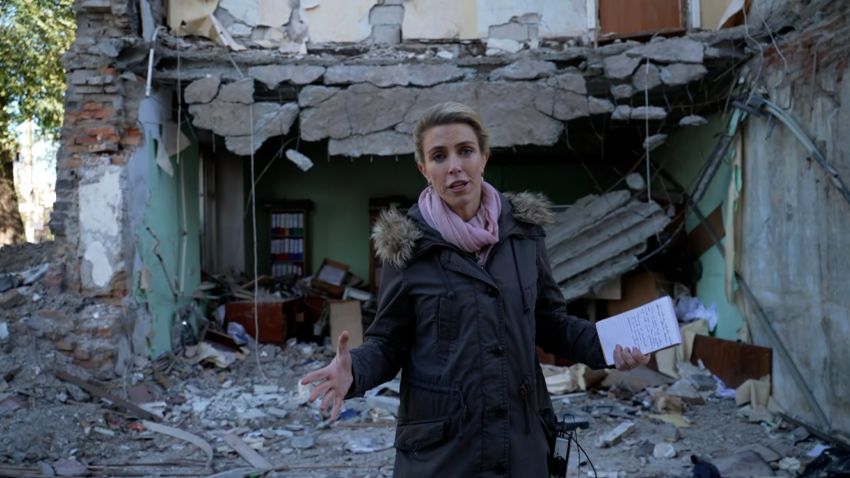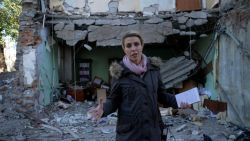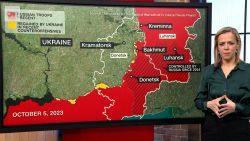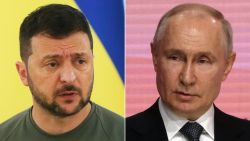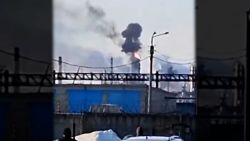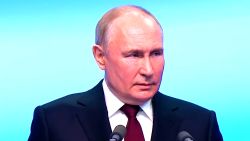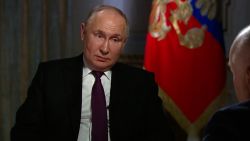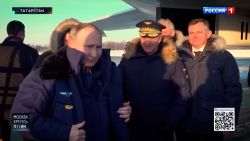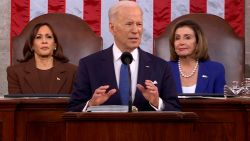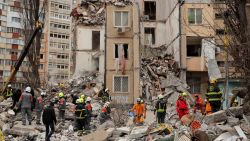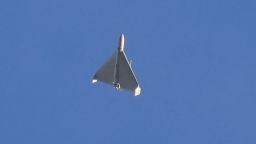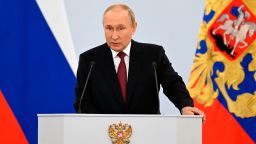Editor’s Note: Frida Ghitis, (@fridaghitis) a former CNN producer and correspondent, is a world affairs columnist. She is a weekly opinion contributor to CNN, a contributing columnist to The Washington Post and a columnist for World Politics Review. The views expressed in this commentary are her own. View more opinion on CNN.
Almost immediately after last month’s blast that destroyed a section of the Kerch bridge connecting Russia to Crimea – the Ukrainian territory it annexed in 2014 – the Kremlin intensified attacks on Ukraine’s civilian infrastructure, stepping up its bombing of apartment buildings, power grid and water systems.

Much of the weaponry for these attacks that are wreaking havoc on the lives of Ukrainians is coming from Iran, which has already supplied Russia with hundreds of deadly drones.
Now, CNN has reported Iran is about to start sending even more – and more powerful – weapons to Russia for the fight against Ukraine, according to a western country closely monitoring Iran’s weapons program.
The strengthening relationship between Moscow and Tehran has drawn the attention of Iran’s rivals and foes in the Middle East, of NATO members and of nations that are still – at least in theory – interested in restoring the 2015 nuclear deal with Iran, which aimed to delay Iran’s ability to build an atomic bomb.
The intersection of the war in Ukraine and the conflicts surrounding Iran is just one example of how Ukraine has become the pivot point for so many of the world’s geopolitical tensions.
A little over eight months since Russia’s full-scale invasion, Ukraine has become the stage upon which multiple battles are being fought.
This is a conflict like few, if any, in recent memory, with grave and far-reaching consequences. The ramifications we have already seen underscore just how important it is – and not only for Ukraine – that Russia’s aggression not succeed.
Russian President Vladimir Putin’s invasion of Ukraine was never a run-of-the-mill border dispute. Even before it started, as Putin initiated – and continuously denied – his march to war, the importance of preventing Russia’s autocratic regime from gaining control of its neighbor, with its incipient democracy, was clear.
The historian Yuval Noah Harari has argued that no less than the direction of human history is at stake, because a victory by Russia would reopen the door to wars of aggression, to invasions of one country by another, something that since the Second World War most nations had come to reject as categorically unacceptable.
For that reason, Ukraine received massive support from the West, led by the United States. The war in Ukraine reinvigorated NATO, even bringing new applications for membership from countries that had been committed to neutrality. It also helped reaffirm the interest of many in eastern European states – former Soviet satellites – of orienting their future toward Europe and the West.
Middle East tensions
Much of what happens today far from the battlefields still has repercussions there. When oil-producing nations, led by Saudi Arabia, decided last month to slash production, the US accused the Saudis of helping Russia fund the war by boosting its oil revenues. (An accusation the Saudis deny).
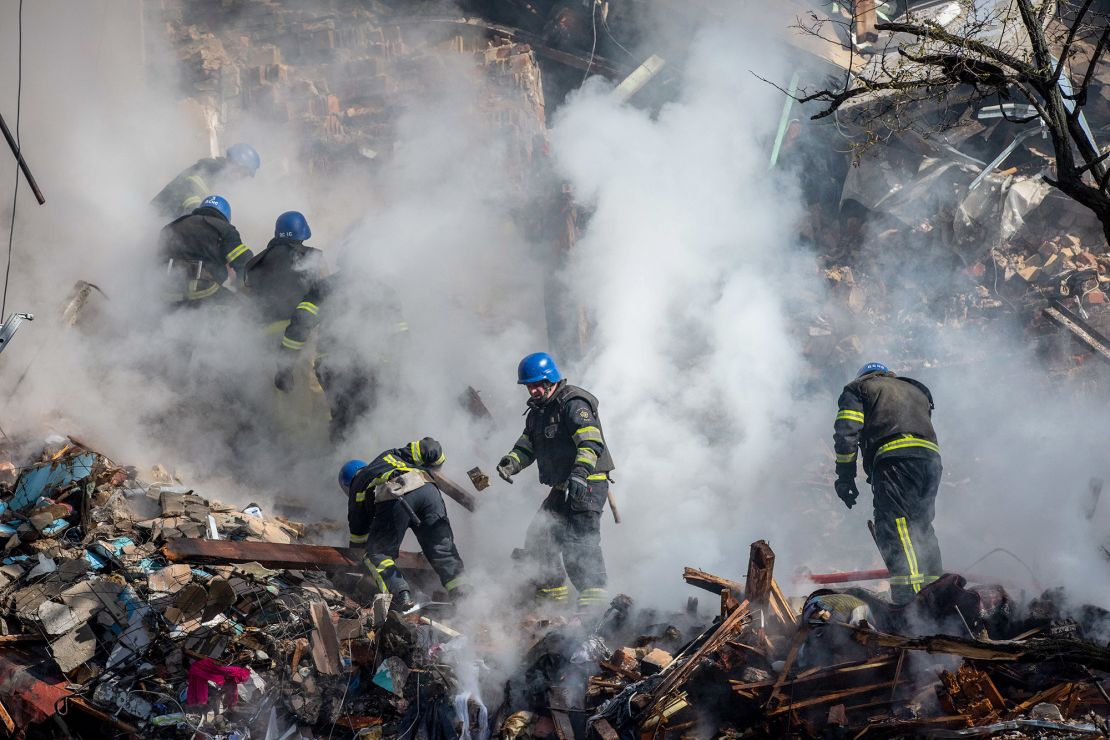
Separately, weapons supplies to Ukraine have become a point of tension with Israel, which has developed highly effective defense systems against incoming missiles. Ukraine has asked Israel to provide those systems, including the Iron Dome and David’s Sling, but Israel refuses, citing its own strategic concerns.
Israeli Defense Minister Benny Gantz recently reiterated that “Israel supports and stands with Ukraine, NATO and the West,” but will not move those systems to Ukraine, because, “We have to share our airspace in the North with Russia.”
Syria’s airspace, bordering Israel, is controlled by Russian forces, which have allowed Israel to strike Iranian weapon flows to Hezbollah, a militia sworn to Israel’s destruction. Gantz has offered to help Ukraine develop defensive systems and it will reportedly provide new military communications systems, but no missile shields.
As others have noted, Israel is reluctant to let go of its defensive systems partly because it could need them for its own defense. Hezbollah in the north holds a massive arsenal of missiles, and Hamas in the south has its own rockets.
Food, fuel and inflation
Beyond the Middle East and Europe, the war in Ukraine has also brought economic and potentially political shockwaves across the world.
Russia’s assault on Ukrainian ports and its patrols of Black Sea halted Ukraine’s grain exports just after the war started, causing food prices to skyrocket. The head of the World Food Program, David Beasley, warned in May that the world was “marching toward starvation.”
A UN and Turkey-brokered agreement allowed Ukraine’s maritime corridors to reopen, but this week Moscow temporarily suspended that agreement after Russian Navy ships were struck at the Crimean port of Sevastopol. Putin’s announcement was immediately followed by a surge in wheat prices on global commodity markets. Those prices partly determine how much people pay for bread in Africa and across the planet.
In fact, the war in Ukraine is already affecting everyone, everywhere. The conflict has also sent fuel prices higher, contributing to a global explosion of inflation.
Higher prices not only affect family budgets and individual lives. When they come with such powerful momentum, they pack a political punch. Inflation, worsened by the war, has put incumbent political leaders on the defensive in countless countries.
Putin’s political admirers
Now comes a new chapter in the international impact of the war in Ukraine. Some of Putin’s former friends in the far right have turned against him, but not all. Some far-right politicians and prominent figures in Europe and the US echo Putin’s claims about the war. Their hope is to leverage discontent – which could worsen as winter comes and heating prices rise.
And it’s not all on the fringes. Rep. Kevin McCarthy, the Republican leader who could become speaker of the House after next week’s US elections, suggested the GOP might choose to reduce aid to Ukraine. Progressive Democrats released and withdrew a letter calling for negotiations. Evelyn Farkas, a former Pentagon official during the Obama administration, said they’re all bringing “a big smile to Putin’s face.”
The war in Ukraine is becoming an engine that fuels a far-right push for more influence; a symbiotic relationship between Putin and his fans in the West. Just as a political action committee linked to the former Trump aide Stephen Miller is arguing against spending on Ukraine, somehow linking it to poverty and crime in the US, like-minded figures in Europe are trying to promote their views by pointing to their country’s hardships as the cost of helping Ukraine. For now, support for Ukraine remains strong in Europe and the US, although flagging among Republicans.
Ukraine has become the epicenter of a global conflict; a hub whose spokes connect to every country, every life. Russia’s aggression – its Iranian drones, civilian targets, and weaponization of hunger – has already taken a global toll, lowering worldwide living standards and raising international tensions.
If Russia is allowed to win, Putin’s war would mark the beginning of a new era of global instability, with less freedom, less peace and less prosperity for the world.
